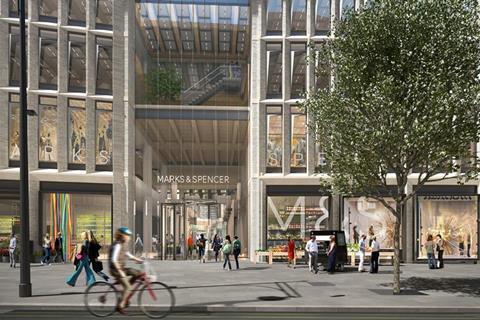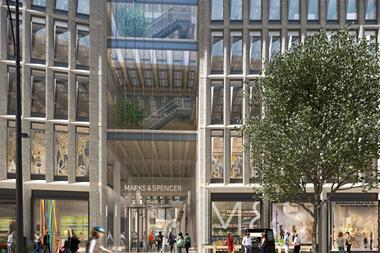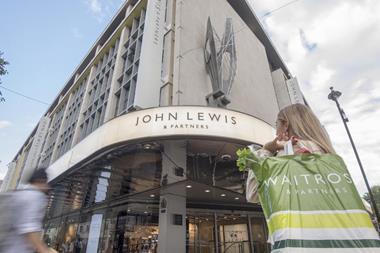
Marks & Spencer has succeeded in a High Court challenge of Michael Gove’s decision to block its Marble Arch store redevelopment plans.
The High Court has found the decision taken by levelling up secretary Gove last summer was unlawful, and quashed it, agreeing with five out of six arguments brought by M&S.
The case has been seen as important not just for M&S but for wider interpretation of planning policy for retail developments.
M&S’s proposal to knock down the 1929 art deco building on London’s Oxford Street and replace it with a modern retail and office complex had already been approved by Westminster council, and gained support from the Mayor of London, when it was called in by Gove in 2022 following opposition from heritage and environmental campaigners.
Gove rejected the plans in July last year on the grounds the public benefits would not outweigh harm to nearby heritage sites. In reaching the decision, he relied on a presumption in favour of reusing buildings in national planning policy.
M&S argued in its legal challenge that no such presumption existed in policy and that Gove had “misunderstood and misapplied” national planning policy.
Agreeing with the retailer, Mrs Justice Lieven said in today’s ruling it was “plain” that Gove had “misinterpreted” policy “and therefore erred in law”.
“This is a clear case of interpretation, not application, of policy,” the judge added.
She said Gove had also failed to provide adequate reasons why blocking the plans would not harm the vitality and viability of Oxford Street.
M&S operations director Sacha Berendji said: “Today’s judgement couldn’t be clearer, the court has agreed with our arguments on five out of the six counts we brought forward and ruled that the secretary of state’s decision to block the redevelopment of our Marble Arch store was unlawful.
Read more: Has Stuart Machin lost his marbles over Gove’s M&S store plan kibosh?
“The result has been a long, unnecessary and costly delay to the only retail-led regeneration on Oxford Street which would deliver one of London’s greenest buildings, create thousands of new jobs and rejuvenate the capital’s premier shopping district.
“The secretary of state now has the power to unlock the wide-ranging benefits of this significant investment and send a clear message to UK and global business that the government supports sustainable growth and the regeneration of our towns and cities.”
A spokesperson for the Department for Levelling Up, Housing & Communities said: “We acknowledge the judgment and are considering our next steps.
“It would be inappropriate to comment further at this stage.”
James Souter, partner at Charles Russell Speechlys, said: “This does not automatically mean that planning permission will be granted – Gove will have to redetermine the appeal and could in theory still refuse planning permission.
“In the event that Gove were to refuse planning permission for a second time, it would be open to M&S to challenge that decision in the same way as they challenged his first decision.”
Michael Dempsey, legal director in Addleshaw Goddard’s planning team, said: “The High Court has held that the secretary of state erred in law in reaching this conclusion because it was based on a meaning of the National Planning Policy Framework that was not open to him.
“There is no strong policy presumption in the NPPF in favour of repurposing buildings as stated in Mr Gove’s decision, with the Court observing that the secretary of state had not so much applied the policy as rewritten it.”
In the wake of Gove’s decision last year, M&S CEO Stuart Machin fumed that the retailer was “left with no choice but to review its future position on Oxford Street on the whim of one man”.
New West End Company CEO Dee Corsi said today’s court decision was “a just result for Marks & Spencer, whose proposed development is a key part of Oxford Street’s and the West End’s future growth story”.
Vicky Fowler, head of planning at the law firm Gowling WLG, said: “This long-awaited and landmark decision in relation to planning policy is likely to reverberate throughout the commercial real estate sector as it breathes a sigh of relief.”


















No comments yet